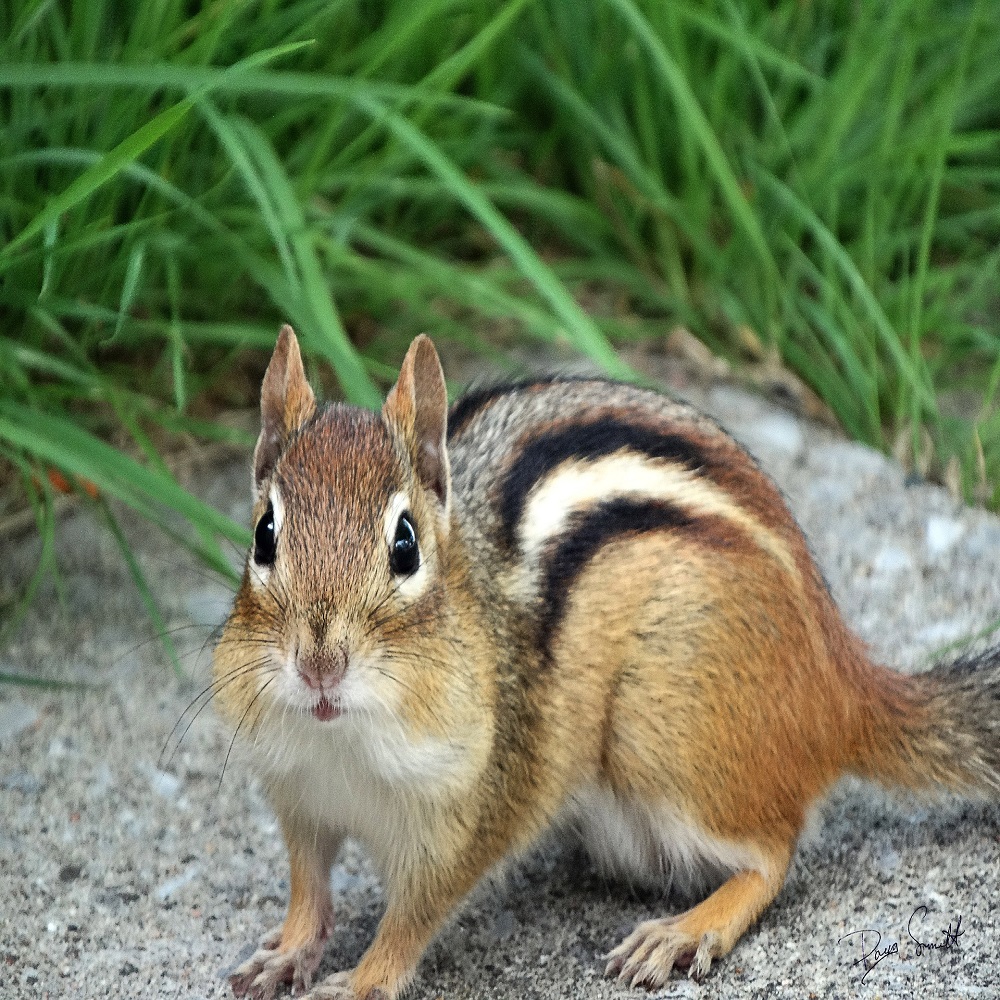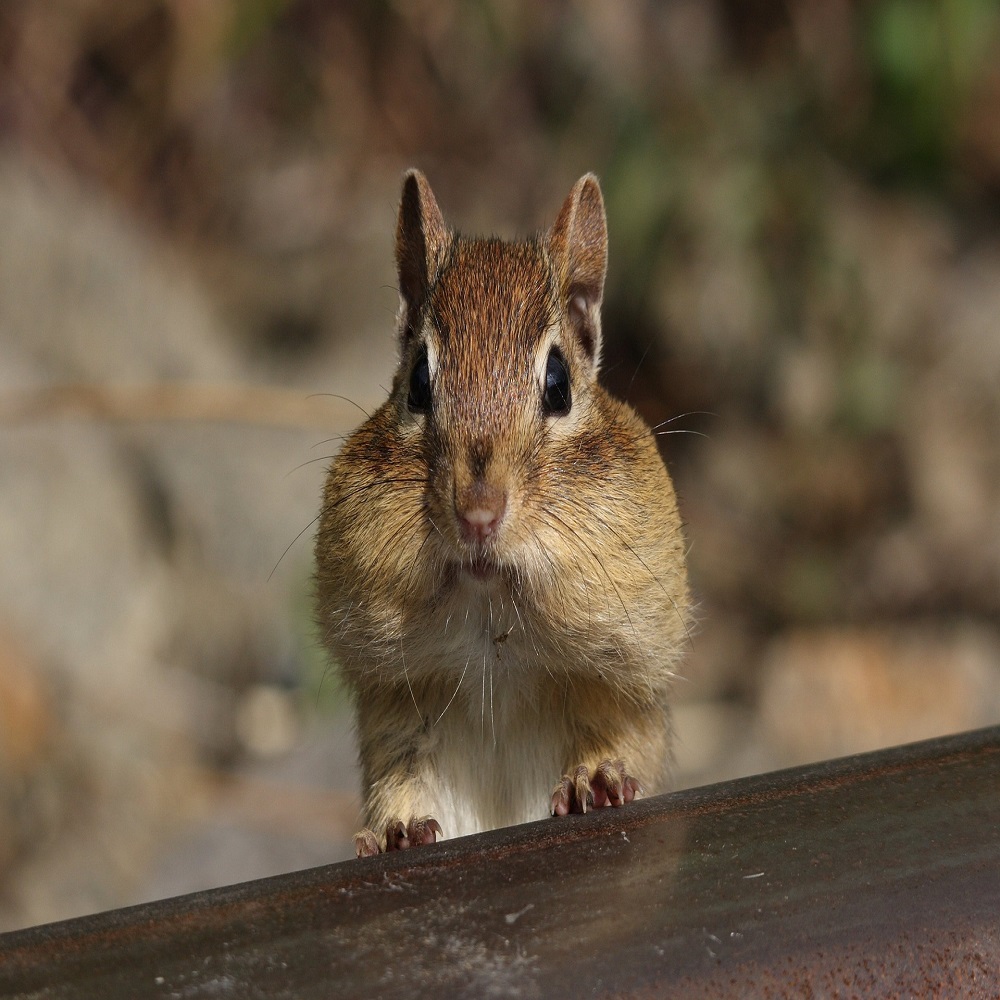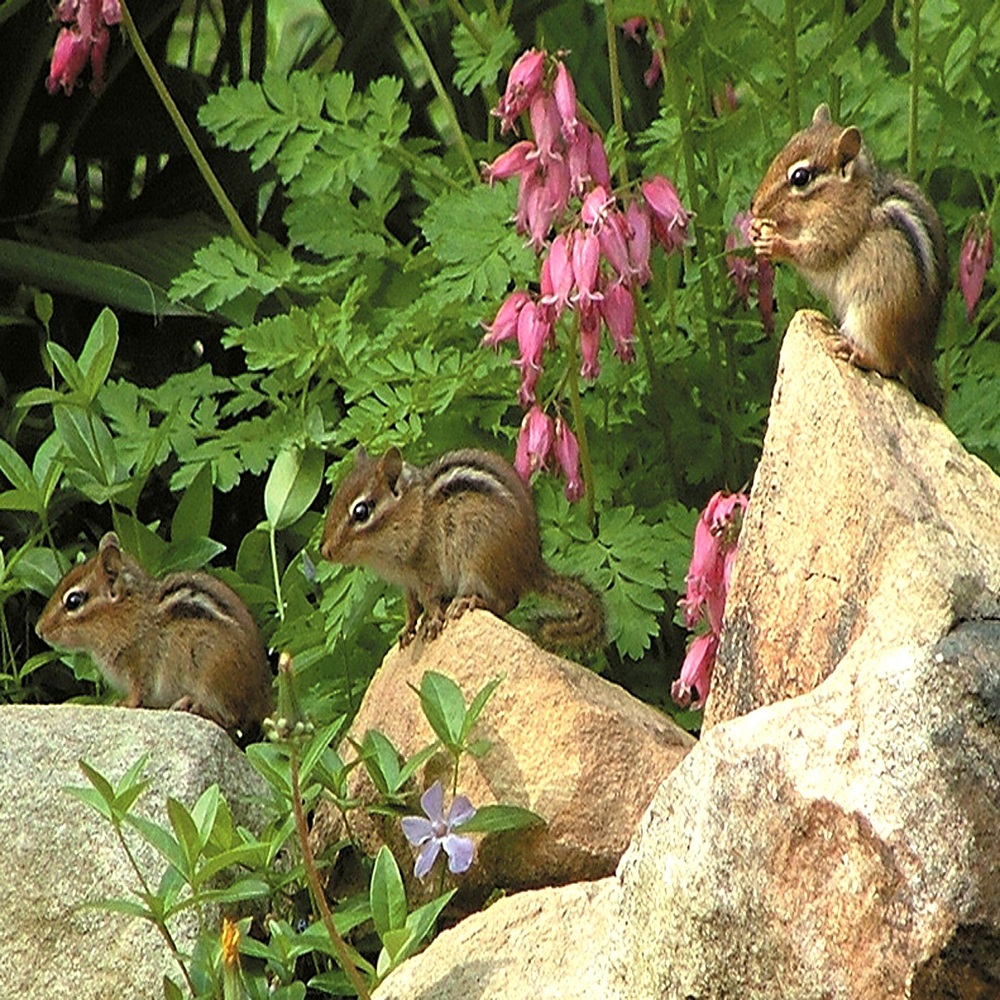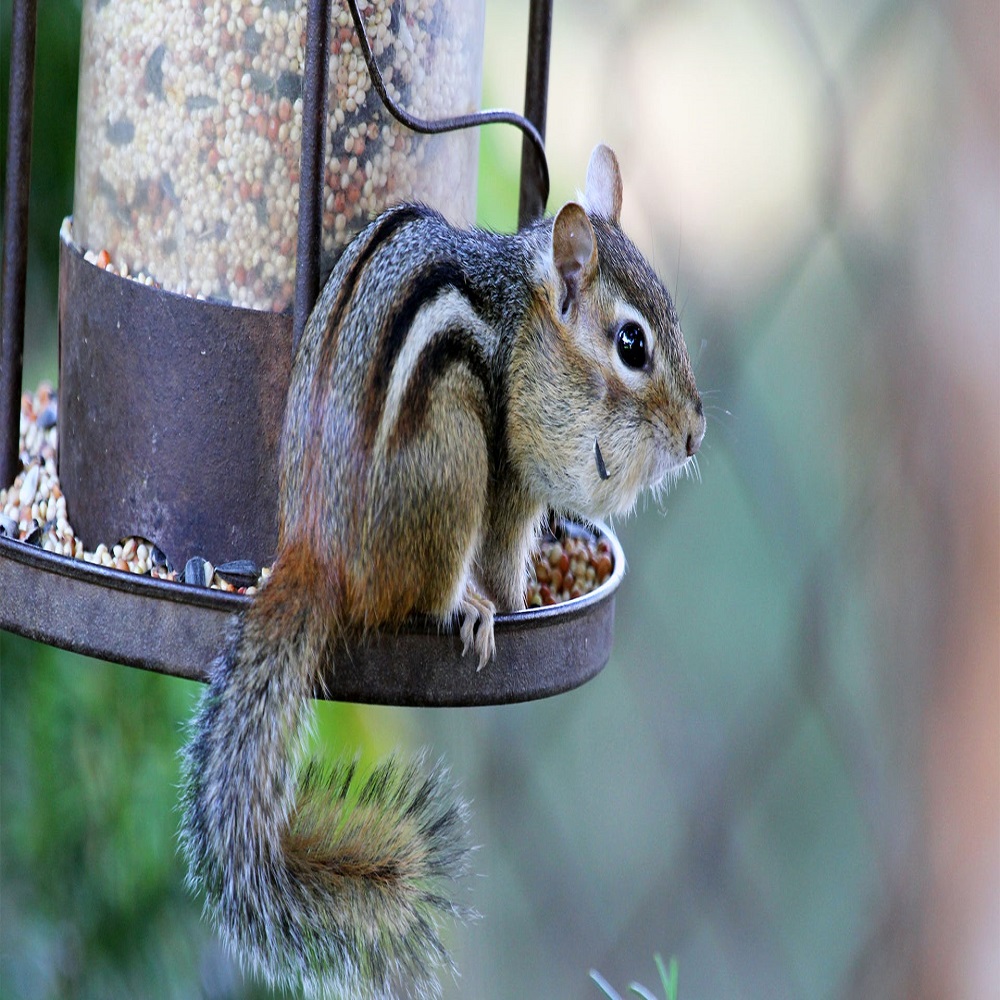Understanding Chipmunk Behavior Around Flower Pots
Understanding why chipmunks dig in flower pots is crucial to finding effective solutions. Chipmunks, small and agile, often search for food or shelter within these contained spaces. In nature, chipmunks collect food like seeds and nuts. They also seek safe places to hide these reserves for the winter.
Chipmunks find flower pots attractive for several reasons. The soft, easy-to-dig soil in pots makes it simple for them to bury food. Additionally, pots often contain young plants with tender roots, which can be a food source. The secluded space of a flower pot also offers a safe spot away from predators.
By understanding these behaviors, gardeners can better strategize on how to protect their plants. Knowing what attracts chipmunks helps in creating deterrents that are both effective and humane.
Common Reasons Chipmunks Dig in Flower Pots
Chipmunks may dig in flower pots for food. They look for seeds and nuts to store for winter. Flower pots offer soft soil that is easy for chipmunks to dig into. This makes hiding their food simple.
Searching for Food Sources
Chipmunks eat plants, seeds, and occasionally small insects. Flower pots can contain these. Pots can also have bulbs and tender roots, which are chipmunk favorites.
Creating Storage Spaces
To prepare for winter, chipmunks bury food. They use flower pots as storage because the soil is easy to work with.
Seeking Shelter and Safety
Flower pots provide a hiding spot from predators for chipmunks. They can feel safe while they search for food or shelter.
Attraction to Moisture and Coolness
Flower pots often stay moist and cool. Chipmunks need water and like cool areas, especially in hot weather. Pots can provide both.
By understanding these common reasons, gardeners can take steps to protect their flower pots. Using deterrents and barriers effectively can help keep the plants safe. It is important to consider humane methods that do not harm the chipmunks.

Natural Repellents to Deter Chipmunks
Chipmunks in your garden can be troublesome, but natural repellents help keep them away without harming them. Here are some effective natural repellents to consider:
- Spicy Substances: Sprinkle cayenne pepper, red pepper flakes, or chili powder around flower pots. The strong smell and taste deter chipmunks.
- Essential Oils: Soak cotton balls in peppermint or eucalyptus oil and place them near the pots. Chipmunks dislike these scents.
- Coffee Grounds: Spread used coffee grounds around your flower pots. The scent may help deter chipmunks, though effectiveness varies.
- Citrus Peels: Scatter lemon or orange peels around the garden area. The citrus scent is another natural chipmunk repellent.
- Garlic: Crush garlic cloves and sprinkle them around or make a garlic spray by mixing with water. Its strong odor keeps chipmunks at bay.
These methods use items commonly found at home and are easy to apply. Reapply these natural repellents regularly, especially after rain, to maintain their effectiveness.
Physical Barriers for Protecting Your Flower Pots
Creating physical barriers is a smart way to prevent chipmunks from accessing your flower pots. There are several options you can put into action with ease. Here’s a look at some popular choices:
- Chicken Wire: Cover soil with chicken wire after planting. This lets plants grow but keeps chipmunks out.
- Hardware Cloth: A sturdier option than chicken wire, hardware cloth can also be used as a barrier.
- Netting: Protective nets can shield your plants, especially useful for pots with bulbous plants.
- Burlap: Lay burlap over the soil as a sustainable, breathable cover that discourages digging.
- Stones and Pebbles: Spread a layer of stones or pebbles on the pot’s soil. It looks nice and deters chipmunks.
- Plant Cages: Buy or DIY small cages around new plantings to keep chipmunks away.
It is important to ensure that these barriers are securely placed and checked regularly. While you protect your plants, remember to be mindful of the chipmunks’ natural behavior. They are not trying to cause harm; they’re simply following their instincts.
Addressing Attractive Factors in Your Garden
To prevent chipmunks from digging in flower pots, address what attracts them. Beyond food and shelter, other garden features may appeal to chipmunks. Identifying and modifying these can reduce digging behavior.
Remove Food Sources
Remove seeds, berries, and nuts fallen on the ground. These can tempt chipmunks to your garden. Keep the ground clean to make it less attractive to them.
Seal Compost Bins
Ensure compost bins are sealed and secure. Open compost can be a food source for chipmunks.
Trim Overhanging Branches
Trim branches that overhang your flower pots. This reduces shelter and leap points for chipmunks.
Maintain Dry and Exposed Soil
Moisture attracts chipmunks. Ensure soil around pots stays dry. Expose soil to sunlight, which chipmunks avoid.
Store Bulbs Securely
If you use bulbs in your garden, store them securely. Unprotected bulbs can attract chipmunks.
By addressing these factors, you can make your garden less inviting to chipmunks. This helps protect your flower pots without harming the animals.

Strategies for Preventing Chipmunk Digging
Preventing chipmunk digging in flower pots requires a mix of tactics. Here are a few strategies:
- Interfere with Their Smell: Spread substances with strong odors around pots. Chipmunks rely on smell for finding food.
- Change the Texture: Add a layer of gravel or pebbles. This makes the soil’s surface less dig-friendly for chipmunks.
- Block Access: Place a wire mesh over the soil. Ensure it’s tight and secure. This stops chipmunks from reaching the dirt.
- Provide Distractions: Set up feeding stations away from pots. This lures chipmunks elsewhere.
- Use Reflective Objects: Hang CD discs or aluminum foil strips. These create movement and light that chipmunks dislike.
- Offer Alternate Spaces: Give chipmunks another area to dig in your garden. A sandbox might work well for this.
By combining these strategies, you create multiple layers of defense against chipmunk digging. Reapply and check tactics often, especially after rain. Remember, the goal is to deter, not harm. Use humane methods that respect chipmunk behavior.
Pros and Cons of Different Deterrent Methods
When trying to stop chipmunks from digging in your flower pots, several methods are available. Each method has its own advantages and disadvantages which need careful consideration.
Spicy Substances
Pros:
- Cayenne pepper and chili powder are easy to apply.
- They offer a natural way to deter chipmunks.
Cons:
- These need frequent reapplication, especially after rain.
- Some might find the scents unpleasant.
Physical Barriers
Pros:
- Chicken wire and hardware cloth provide a strong defense.
- They are durable and offer long-term protection.
Cons:
- Installation can be more labor-intensive.
- They may detract from the aesthetic of your garden.
Natural Smells such as Essential Oils
Pros:
- Eco-friendly and easy to implement.
- Pleasant aroma for humans.
Cons:
- Effectiveness can vary with weather conditions.
- Frequent application is necessary to maintain effectiveness.
Gravel or Pebbles
Pros:
- Adds a decorative touch to pots.
- Easy to maintain once applied.
Cons:
- May not be completely effective if chipmunks are persistent.
- Needs a decent amount to cover sufficiently.
Feeding Stations
Pros:
- Redirects chipmunks to a different location.
Cons:
- It could attract more chipmunks to your property.
- Regular maintenance and food replenishment needed.
By understanding the pros and cons of these methods, you can choose a combination that best fits your garden’s needs. Always remember to use humane methods when dealing with wildlife such as chipmunks.

Legal Considerations and Humane Solutions
When addressing chipmunk activity in your garden, it’s vital to consider legal and humane aspects. Each area has specific regulations about wildlife control. Here are some pointers to follow:
Check Local Wildlife Laws
Before taking any action, research your local wildlife protection laws. It’s illegal to harm chipmunks in many regions. Always stay within legal boundaries.
Use Humane Deterrents
Choose deterrents that don’t harm chipmunks. Spicy substances and physical barriers are usually safe.
Avoid Relocation
Do not trap and relocate chipmunks. This can be stressful and harmful to them. It’s often against the law.
Seek Professional Advice
If you need help, consult a wildlife control professional. They know the laws and humane practices.
Don’t Use Poison
Avoid using poison as it’s inhumane and risky for kids and pets. Stick to natural repellents.
By considering these legal and humane solutions, you’ll handle chipmunk concerns responsibly. Protect your flower pots without causing harm to these garden visitors.
